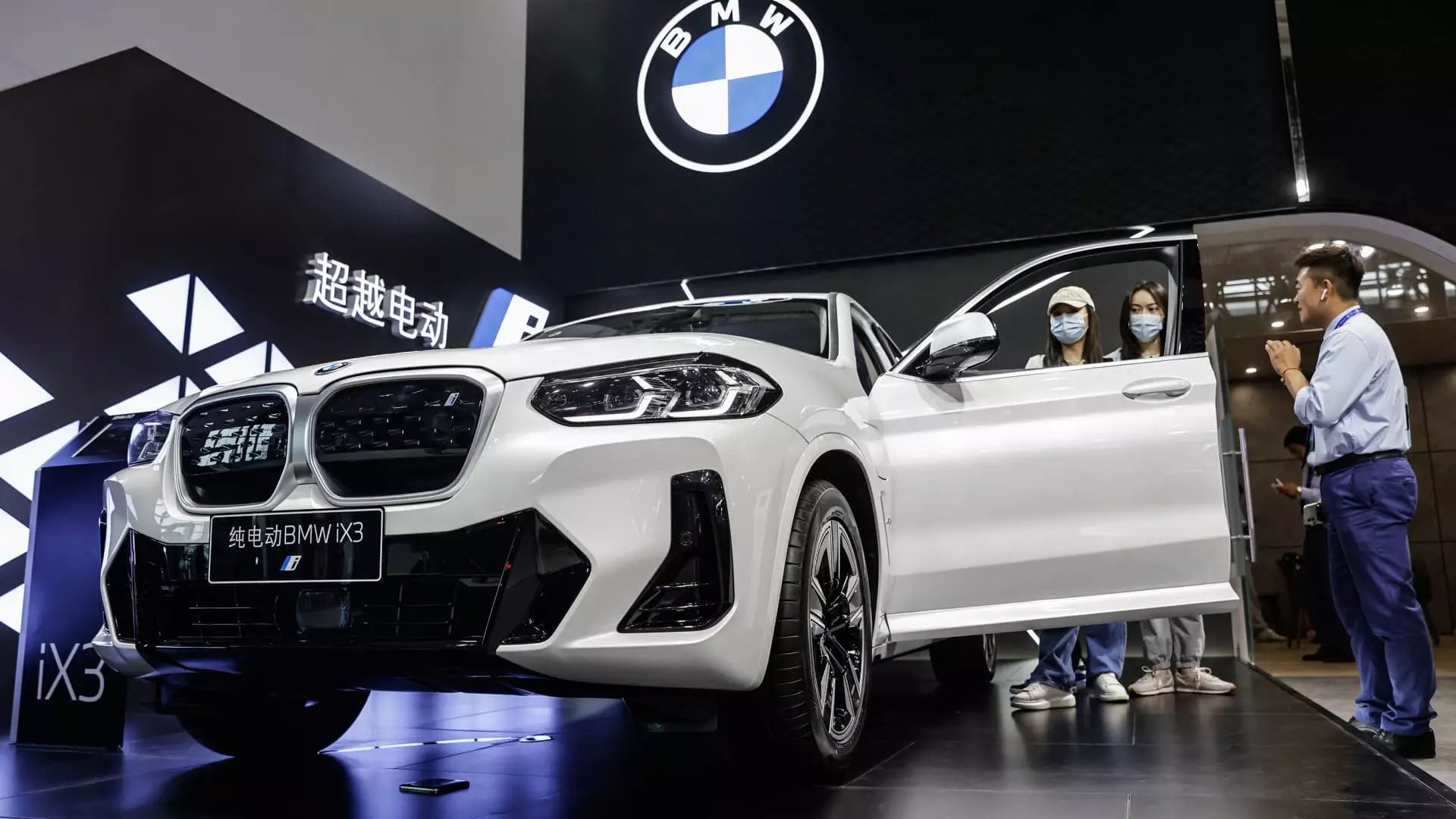BMW has just reported a staggering 36.9% decline in net profits for the year 2024, totaling 7.68 billion euros (approximately $8.32 billion). This data reflect not just a downturn in numbers but also the ramifications of an increasingly tumultuous global marketplace, particularly in China—one of BMW’s key markets. The company has seen its stock value dip 2% in response to this troubling announcement, further signaling investor anxiety amidst mounting uncertainty. Analyzing these figures offers a stark reminder that the automotive sector is not just battling economic cycles; it is embroiled in a broader, more complex geopolitical landscape.
China: A Market on the Edge
BMW’s statement highlights a “continuing subdued demand in the Chinese market.” This isn’t merely a temporary setback; it’s a reflection of deeper issues at play. China’s economy is navigating a rocky path, marked by volatility and uncertainty. The challenges BMW faces there are likely transcending typical market dynamics, making it imperative for the company to adapt swiftly. The automotive titan must rethink its strategies in the face of not only local competition but also the intricate web of international trade relations that shape demand.
The Tariff Dilemma
With the rising tide of tariffs imposed on imports—specifically, a 20% tariff on goods from China and a substantial 25% from Canada and Mexico—BMW’s profit margins are precariously poised. The company anticipates an earnings margin for its cars to decline to between 5% to 7% this year, down from 6.3%. Such declines are alarming not just because they affect the bottom line but because they reveal a broader vulnerability rooted in economic policies favoring isolationism over integration. This raises critical questions: Are tariffs still a legitimate tool for enhancing competitiveness? BMW’s CFO argues that these additional costs could erode profitability, even as the interconnectedness of global markets suggests that protectionist measures might only exacerbate the underlying problems.
Leadership Under Fire
During a recent interview with CNBC’s “Squawk Box Europe,” BMW’s CEO Oliver Zipse discussed the perilous road ahead. His comments suggest a shift in perspective: while tariffs may have once been considered a valid approach to bolster domestic industries, their effects in our tightly woven global economy seem increasingly counterproductive. Zipse cautions that “everything is connected” and implies that the very notion of using tariffs as a beneficial strategy is outdated. This is not simply a corporate dilemma; it’s a litmus test for how we think about global economics.
Trends and Tomorrow
As BMW braves these tumultuous waters, its projected deliveries reflect a slight decrease to 2.45 million vehicles from the previous year’s 2.55 million, a statistic that raises additional alarm bells. Less than stellar demand is likely further compounded by production woes, such as the recent braking system failures linked to Continental, which have led to halted deliveries. Clearly, the idea of what it means to be competitive in today’s landscape has evolved, and companies like BMW must recalibrate their expectations and approaches. The momentum we see from leadership’s insistence on adapting to free trade principles could signal a forward-thinking shift that emphasizes collaboration over conflict—a much-needed pivot in a world desperate for economic stability.

